Pill-on-a-thread trials to help spot cancer early
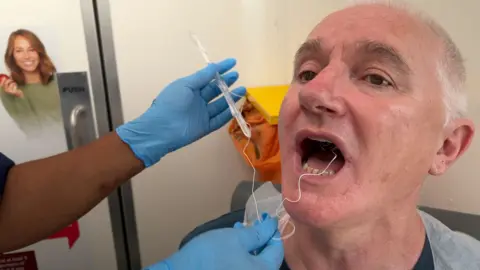 BBC
BBCA small pill on a thread that researchers believe could help detect oesophageal cancer earlier has been trialled in testing vans across Hampshire.
Patients who have suffered with heartburn or acid reflux were invited to Lock's Heath Shopping Centre, Fareham, this week.
The pill contains a small sponge that expands to catch cells in the oesophagus and can then be sent for testing.
One patient invited to be screened, 53-year-old Ian Stewart, described it as "fantastic".
Heartburn and acid reflux can cause inflammation and lead to a condition called Barrett's oesophagus, which in a small number of cases can lead to cancer.
The trial, called BEST-4, was designed by Cancer Research UK (CRUK), with scientists from the Cambridge University Hospitals NHS Foundation Trust (CUH), who developed the pill.
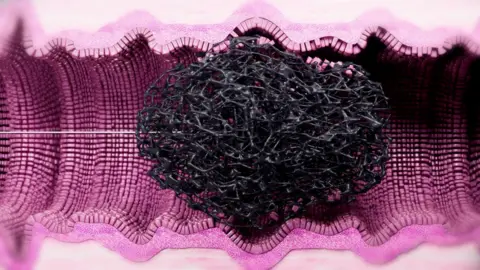 CYTED
CYTEDClinical staff said it could help cut staff costs and waiting times by reducing the number of people who needed to go for an endoscopy.
Mr Stewart, from Hampshire, suffers from acid reflux and said his wife had undergone endoscopies in the past to test for Barrett's oesophagus.
"I've never had an endoscopy, and I kind of dread it," he said.
"But this is fantastic - being able to do the tests here in a car park, just rock in and come back out again, that will make it so much easier for people."
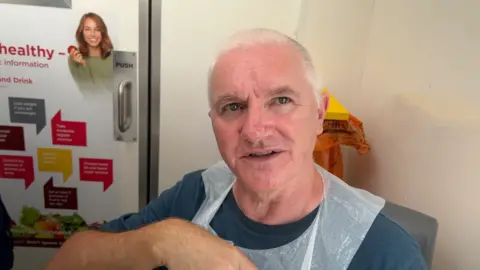
Irene Debriam-Beecham, a senior research nurse from CUH who handled his test, said she had worked on the study for more than 20 years.
"We have a lot of patients out there who have suffered with heartburn and acid reflux," she said.
"As a result of that, some of those have underlying Barrett's oesophagus which is never detected.
"The first time we see some of these patients is when they've presented with a cancer."
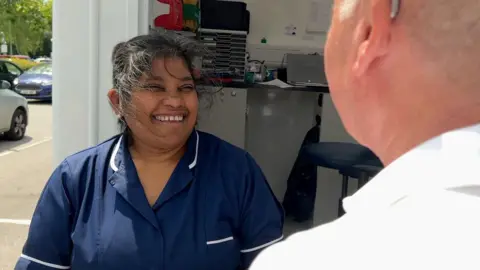
She said the capsule was used to identify patients who needed an endoscopy, which would hopefully reduce the burden on hospitals.
A few minutes after Mr Stewart swallowed the pill, Ms Debriam-Beecham removed the sponge, causing a slight gag, and the test was over.
"I'm glad she did it quickly," he said. "I could feel it coming up my throat, but it made my eyes water and that was it - it didn't hurt."
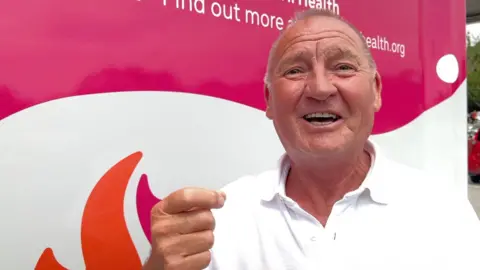
John Saunderson, 65, from Reading, is a survivor of oesophageal cancer. He was diagnosed in 2018 and got the all-clear in 2024.
He said: "Apparently, if I'd kept it under wraps for another month or two, I wouldn't have survived it.
"They gave me a 5-30% chance of living. Now, I've come through it all, and I've seen three grandchildren born, I've seen my son get married.
He said compared to the six or seven endoscopies he received, he found the new test relatively non-invasive.
"I just want to make everybody aware of how important it is to get early detection," he added.
